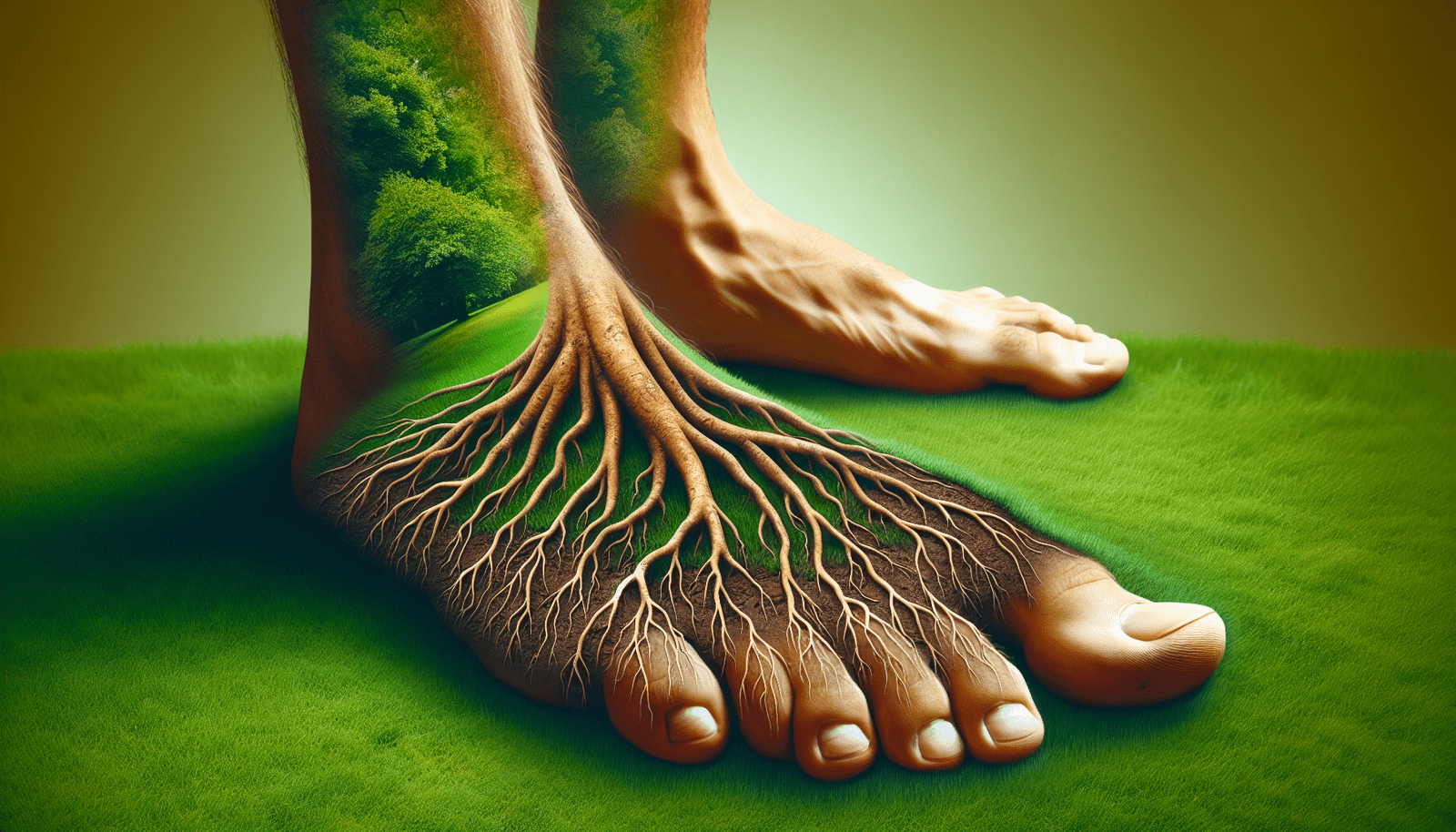Welcome to an article that will explore the incredible benefits of grounding for adults. Grounding, also known as earthing, is a practice that involves connecting the body to the earth’s natural energy by walking barefoot on grass, sand, or soil. This simple yet powerful technique has been shown to reduce inflammation, improve sleep, increase energy levels, and promote overall well-being. Discover how incorporating grounding into your daily routine can have a profound impact on your physical and mental health.
Grounding Benefits For Adults
Do you ever feel stressed, anxious, or overwhelmed? Grounding techniques can help bring you back to the present moment and provide a sense of calm and stability. In this article, we will explore the various grounding benefits for adults and how you can incorporate these techniques into your daily routine.
What is Grounding?
Grounding, also known as earthing, is a practice that involves connecting your body to the earth. This can be done by walking barefoot on grass, sand, or dirt, or by using grounding tools such as grounding mats or blankets. The theory behind grounding is that the earth’s energy can help balance the body’s electrical charge, reduce inflammation, and improve overall well-being.
Grounding Techniques for Stress Relief
Grounding techniques can be particularly beneficial for adults who experience high levels of stress. By grounding yourself, you can help calm your nervous system and reduce feelings of overwhelm. Some simple grounding techniques for stress relief include:
- Taking a walk outside and focusing on the sensation of your feet touching the ground
- Practicing deep breathing exercises while sitting or lying on the earth
- Placing your hands in a bowl of warm water and focusing on the sensations in your hands
- Visualizing roots growing from your feet into the earth, grounding you and providing stability
Grounding Benefits for Anxiety
Anxiety can be debilitating for many adults, but grounding techniques can be a powerful tool in managing symptoms. By grounding yourself, you can shift your focus away from intrusive thoughts and physical sensations of anxiety. Some grounding benefits for anxiety include:
- Feeling more present and connected to your surroundings
- Quieting the mind and reducing racing thoughts
- Feeling a sense of safety and security in the present moment
- Regulating the breath and reducing feelings of panic or overwhelm
How Does Grounding Work?
Grounding works by allowing the body to absorb the earth’s energy and restore its natural balance. When we are grounded, our bodies are able to release excess electrical charge, reduce inflammation, and improve circulation. Grounding can also help regulate the body’s cortisol levels, reduce stress, and improve sleep quality.
The Science Behind Grounding
Research has shown that grounding can have a positive impact on a variety of health conditions, including inflammation, pain, stress, and sleep disturbances. One study published in the Journal of Alternative and Complementary Medicine found that grounding can help reduce pain, improve blood flow, and decrease inflammation. Another study published in the Journal of Environmental and Public Health found that grounding can help improve mood, reduce stress, and promote relaxation.
Neurological Benefits of Grounding
Grounding has been shown to have a calming effect on the nervous system, which can help reduce symptoms of anxiety, depression, and PTSD. When we are grounded, our bodies are able to enter a state of relaxation and repair, allowing for improved cognitive function, emotional regulation, and mood stability.
How to Ground Yourself
There are many ways to ground yourself and reap the benefits of earth’s energy. Whether you prefer to get outside and connect with nature or use grounding tools indoors, there are plenty of options to choose from. Here are some simple ways to ground yourself:
Outdoor Grounding Techniques
- Take a walk barefoot on grass, sand, or dirt
- Sit on the ground and meditate or practice deep breathing
- Garden or work with plants
- Swim in natural bodies of water such as lakes or rivers
Indoor Grounding Tools
- Use a grounding mat or blanket while sitting or sleeping
- Place your feet in a bowl of warm water
- Practice yoga or tai chi
- Use essential oils such as lavender or chamomile to promote relaxation
Incorporating Grounding into Your Daily Routine
Incorporating grounding techniques into your daily routine can help you feel more balanced, calm, and centered. Whether you set aside a few minutes each day for grounding exercises or practice grounding throughout the day as needed, finding a routine that works for you is key. Here are some tips for incorporating grounding into your daily life:
Morning Grounding Routine
- Start your day by grounding yourself with a short meditation or breathing exercise
- Take a few moments to connect with nature before starting your day
- Set an intention for the day and remind yourself to stay present and grounded
Midday Grounding Breaks
- Take a barefoot walk outside during your lunch break
- Practice deep breathing exercises at your desk or in a quiet space
- Use a grounding tool such as a mat or blanket to help you stay centered and calm
Evening Wind-Down Routine
- Before bed, practice a grounding meditation or visualization to help you relax
- Reflect on your day and any moments when you felt grounded and present
- Create a peaceful sleep environment with calming scents and comfortable bedding
Conclusion
Grounding techniques offer a variety of benefits for adults, including stress relief, anxiety management, and overall well-being. By incorporating grounding into your daily routine, you can experience a greater sense of calm, stability, and connection to the earth. Whether you prefer to practice grounding outdoors or use grounding tools indoors, finding what works best for you is key. So, take some time to explore the world of grounding and discover the benefits for yourself.
